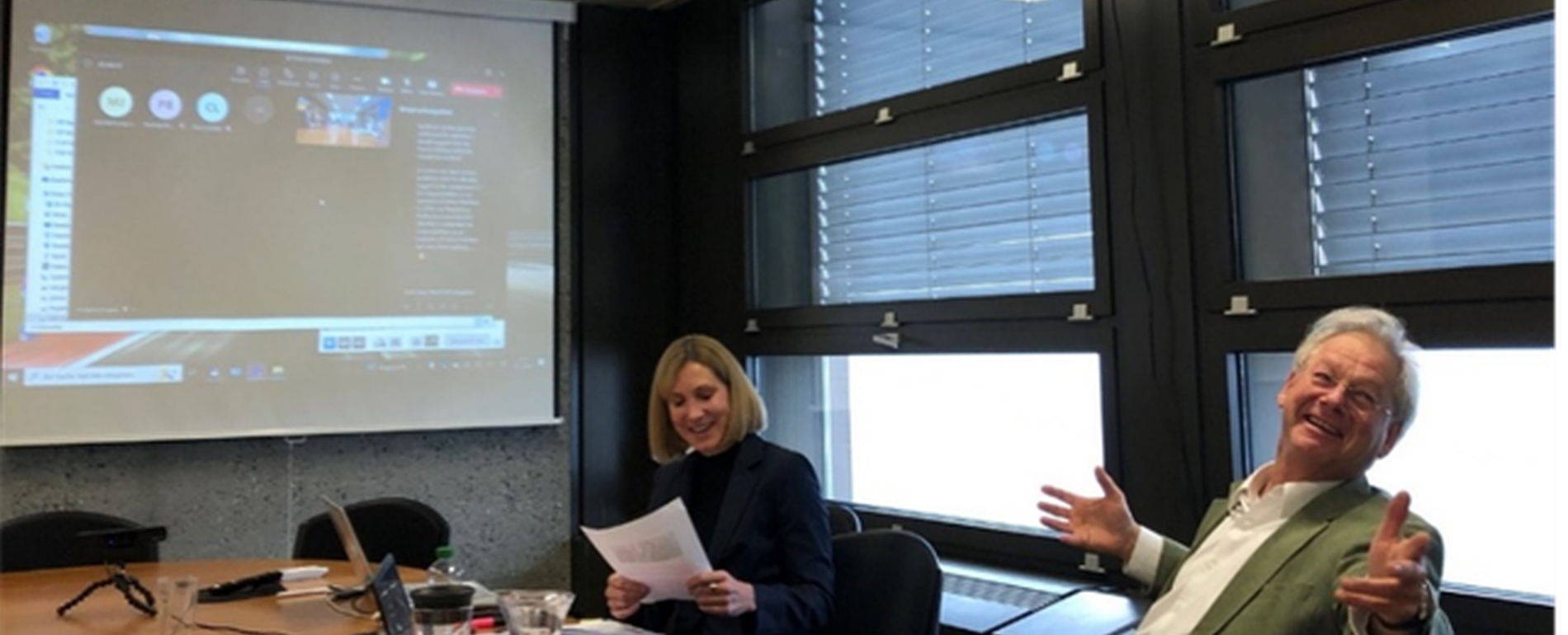4/22
CUI Committee meeting on 15 December 2022

The CUI Committee met on 15 December in a hybrid session. Discussion focused on a number of key issues in the context of current infrastructure-related topics.
Latest developments in European law relating to the use of infrastructure
Developments relating to the use of infrastructure, and the regulations governing it, are underway at various levels. With regard to cybersecurity, a presentation was given on the draft revision of the NSI Directive. Readers are reminded that CUI Committee Chair Adriaan Hagdorn’s article on cybersecurity, the NSI directive and revision thereof can be consulted at CIT-Rail.org - CIT News.
There was also a presentation of the revised Regulation (EC) 1371/200 on rail passengers’ rights and obligations (PRR), the revision process having now concluded. Readers are reminded that the new Regulation (EU) 2021/782 entered into force on 7 June 2021 and will become applicable from 7 June 2023 (except article 6, paragraph 4, on spaces for bicycles, which will become applicable from 7 June 2025).
The meeting also discussed the European Commission initiative on “Cross-border rail transport – improving management and coordination” and the draft revision of Regulation (EU) 1315/2013 on Union guidelines for the development of the trans-European transport network (RTE-T) and Regulation (EU) 913/2010 on rail freight corridors (RFC Regulation); these will be core to the Commission’s forthcoming legislative proposal in 2023.
The programme of work of the OTIF Ad-hoc Committee on Legal Matters and International Cooperation was also mentioned. With regard to the use of infrastructure, the programme includes the following key points:
- Rail network access conditions and cross-border cooperation for the purposes of organising international carriage by rail;
- Standard contract for international train paths;
- Application of the CUI UR to service facilities.
Lastly, the latest rulings of the CJEU (case C-500/20) and national regulators (ART, Decision no. 2022-059) were explained and discussed.
The second major topic on the agenda was the RNE/FTE project “Redesign of the International Timetabling Process” (TTR). The CIT GS participates in the TTR Legal Task Force which provides legal support to the RNE/FTE-initiated project entitled “Redesign of the International Timetabling Process”. The aim of the TTR project is to rethink the planning and capacity/train path allocation process. The European Commission has stated that it supports the TTR project and may initiate a revision of Directive 2012/34/EU in order to create a legal basis for TTR. This would take place parallel to revision of Regulation 913/2010 on rail freight corridors. Transposition of the TTR project thus needs to be considered as part of the Commission’s legislative proposals during 2023. For further information, see the article on the project published in CIT News 3/2022.
The committee once more discussed the European Standard Contract for the Use of Infrastructure (E-SCU-I), which continues to be publicised to raise awareness of it. The contract is part of a broader RNE/CIT joint project aiming to harmonise the contractual framework applicable to international carriage by rail. As the starting point for discussions on the harmonisation of documents from an RU standpoint, the CIT GS drew up a synoptic table of which document (contract of use, GTC, network statement) should contain which provisions. The legal sources drawn on in the table were the structures of the E-SCU-I and E-GTC-I (European General Terms & Conditions for the use of railway Infrastructure) and the RNE Network Statement Common Structure.
The issue of service facilities has prompted many questions throughout 2022, and the topic of “CUI and service facilities” has been included in the programme of work of the OTIF Ad-hoc Committee on Legal Matters and International Cooperation mentioned earlier. As concerns service facilities, the CUI Committee’s first decision in 2019 addressed the liability rules for these. At that time, the question arose what follow-up work was needed on the topic.
Goodbye of the chair of the CUI Committee, Adriaan Hagdorn (NS)
Adriaan was elected chair of the CUI Committee in 2016. The issue of infrastructure use is one of the most difficult and challenging one within the CIT. It is not possible to develop things without the opposite side: the Infrastructure Managers. Adriaan was re-elected in 2019 for another last mandate, which ends in 2022. Over the years, Adriaan with the members of the CUI Committee tackled some difficult issues: There was the revision of the CUI Uniform Rules. In addition, certainly the negotiations with RNE on the European Standard Contract of use of railway infrastructure were a milestone. They helped to bring the relationship between RUs and IMs to another level: not as opponents, but as partners. Adriaan contributed to this spirit. Afterwards, the discussions on service facilities were deepened. The CUI Committee and the CIT team would like to thank Adriaan for his wise advice, his sharp legal mind and his always friendly and open manner!
guillaume.murawa(at)cit-rail.org
